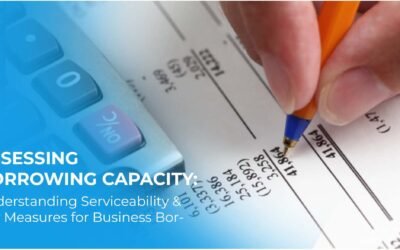Business Lending: Types of Security for Securing Finance

Business Lending: Acceptable Security Types for Securing Finance
When it comes to securing business finance, lenders often require borrowers to provide some form of security as a safeguard against potential losses. In this comprehensive guide, we will explore the various types of security commonly used in business lending, focusing on property, equipment, and business assets. We will also discuss general security agreements, guarantees, and indemnities, shedding light on best practices for effectively structuring and securing commercial finance.
Property as Security
One of the most common forms of security is property. By registering a mortgage on real property, borrowers provide lenders with a statutory charge on the land or interest, ensuring the protection of the lender’s capital.
Property security is typically supported by personal and directors’ guarantees. Additionally, a General Security Agreement (GSA) may be established to cover the borrowing entity and affiliated entities contributing to loan serviceability.
Types of Property as Security:
Residential Property
Utilizing a residential property as collateral for a business loan can offer borrowers access to more favorable terms.
Commercial Property
Commercial properties can be broadly classified as standard or non-standard. Standard commercial properties, such as offices, warehouses, factories, and retail premises, are generally preferred by lenders and provide more lending options.
Specialized Commercial Property
Specialized commercial properties, including accommodation facilities (motels, hotels, caravan parks), aged care facilities, child care facilities, and farms, pose higher risks to credit providers due to their narrower market availability upon exit.
Equipment as Security
In addition to property, businesses can also use equipment as collateral for financing. The terms of asset finance depend on the expected useful life and valuation of the asset. Credit providers mostly prefer non-specialized assets that can be easily liquidated.
Funding arrangements for business equipment include finance leases, commercial hire-purchase, chattel mortgage, and rental agreements.
Business as Security – Cash Flow Lending
Obtaining business security, also known as “Cash Flow Lending,” can be more challenging, especially for small businesses. However, businesses with strong balance sheets and future cash flows may be eligible for lending facilities without providing property or cash as security.
General Security Agreements (GSA) & Personal Property Securities Register (PPSR)
A General Security Agreement (GSA) can be used to secure borrowing without property collateral, demonstrating a business’s performance and processes that set them apart.
The Personal Property Securities Act 2009 (PPSA) regulates security interests in personal property, and the Personal Property Securities Register (PPSR) is the registry for such interests. The requirements include a GSA covering general assets and a specific security agreement for designated goods.
Guarantees & Indemnities
Individuals who support the borrowing entity are often required to provide personal guarantees and indemnities. These guarantees mean that personal assets are potentially at risk. Lenders may require a certificate of independent legal advice for each individual guarantor.
Financial Position & Background Assessment
Lenders typically assess the personal financial position of borrowers and guarantors, as well as their industry experience. The capital accumulated by individuals indirectly reflects their business experience, and the borrower’s capital base, can help mitigate poor business performance. Lenders often request completed Asset & Liability Statements to evaluate the ability to fulfil obligations.

Conclusion
Understanding the different types of security available in business lending is crucial for effectively structuring and securing commercial finance. By utilizing property, equipment, or business assets as collateral, borrowers can access favorable loan terms.
Additionally, general security agreements, guarantees, and indemnities provide additional layers of protection. Assessing personal financial positions and industry experience is essential for lenders to evaluate the borrower’s ability to meet obligations. Consult with professionals to discuss your specific security needs and secure the finance you require.
To learn more about structuring and securing commercial finance, and to discuss your specific security needs, book a meeting with us here.
Disclaimer: The information provided in this blog is for educational purposes only and should not be considered financial advice. Always consult with a professional financial advisor or lender for specific lending decisions.





